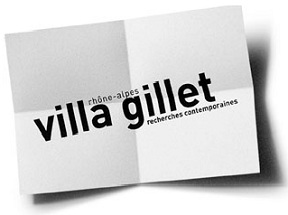An interview with Helen Oyeyemi - Assises Internationales du Roman 2012
Patricia Armion: One of the most striking elements in your novel is the use of the supernatural, could you explain your choice?
Helen Oyeyemi: I tend to think that the more fantastical a book is, the more true it is, that in some way it drives this whole part of human drama in a more direct way than what we call realism which I kind of like. It’s a bit more strange and slightly more weird than that, especially the life of the mind which I am very interested in. So I think the book borders on the supernatural, somewhere between the supernatural and playing with themes of madness.
P.A. So you’d say that the supernatural is saying something more real than realism in novels?
H.O. Yes, there are realist novels that I’ve read, that I’ve found very true. But on the whole I find it more emotionally descriptive when we begin to speak in terms of the supernatural.
P.A. There’s a lot to say about intertextuality in your novel, is it a concern of yours as a young writer?
H.O. I think it’s a concern of mine as a writer in general, as a reader as well. I find it impossible to tell a story that is not aware of the other stories that came before it. That’s a dialogue with other stories. Some of my favourite books are like Jane Eyre and Wide Sargasso Sea: there’s a conversation between those two books that were written like centuries apart and yet they deal with characters and themes that they have in common. So yes, I’m interested in telling stories, old stories in new ways.
P.A. Why are there so many different narrators in your novel, so many entangled voices? There’s something very special in your novel. For example there’s a switch from one narrator to another narrator on a single word. That’s very creative. Where does it come from?
H.O. Well, I think it connects with intertextuality again. It was my way of taking something that I saw in a book of Wilkie Collins, The Woman in White, a typical classic and also gothic novel. Part of what I found so frightening about it, what I found so frightening about Dracula was the way it’s told in all those different voices and we rely on them for our knowledge of what happened in the story like we don’t know any more than that particular voice tells us. When the voice comes to the end of its knowledge and falls silent then the next voice picks up. I was trying to take that to an extreme, changing it on a word and plunging it even further into that uncertainty.
P.A. It’s very confusing for the reader and I knew that you were interested in the idea of the gothic novel. While reading it we can see that the house is like a maze and it somehow affects the novel itself. The words are always repeating themselves: we find them first meaningful and then meaningless.
H.O. I think that was part of the intended effect because I suppose it was my way of trying to tell a story about a girl who is lost. And there is no resolution to the story. She is quite simply lost. And so I had to find a way for the characters to express their coming to terms with that as well. And so the fact nobody knows the answer to her question, to the question of where Miranda is, sort of ties in with the way the story is told.
P.A. While writing the novel, was the switching from one narrator to another an obstacle or a game for you? Was it difficult?
H.O. It was very difficult, it was very tricky because as I was writing I was establishing what these characters knew and often they contradicted each other. It was difficult to negotiate, to even see a clear path through the story. So yes I had plenty of nightmares writing it. It was a very difficult atmosphere but it helped, it felt necessary like that was the only way that the story could be.
P.A. There are voices in the house obviously. And these voices can be heard by Miranda as well and she’s haunted by these voices and she yields to them at the end.
H.O. It’s interested because sometimes even I who have written it, I’m not sure what happened to her. At some point when I was writing it, I thought: she’s definitely fighting against this, this is her way of exiting the story, that’s what her disappearance is, she refuses to be the next line, the next in line. But sometimes I felt as if she just couldn’t fight the voices anymore and that she just had to go and be with her ancestors. Maybe the real answer is somewhere between the two extremes of rejection and submission.
P.A. She’s weak and strong at the same time. The idea of the soucouyant you’re talking about a lot in the novel, having another skin and trying to get back to her skin before the sun rises is part I think of this process too.
H.O. Yes, partly it’s a longing for another home and for another history and that’s what the whole idea with the skin is: this kind of external perception of you and her wanting to be completely detached. But also I think Miranda is someone that’s very much trapped by her appearance: she fixes her appearance quite early, she makes sure she has these red lips and this very strict black hair and dresses all in black and she tries to fix her image. And that’s something she almost wants to do out of loyalty to her mother because her mother is this photographer and so obsessed with images and things being just so and fixing things in frame in perfection, a perfection of images, like the perfect people that she used to draw. But Miranda’s conception of herself is actually something that’s completely alien from that, almost like in picture she appears different from the way that she does in person.
P.A. The colours seem to play an important role in your novel especially white and silver. Was it something important for you? All the colours, the purple, the colourful fabrics…
H.O. Yes, the white and the silver were definitely. I was thinking about the moon and its connection to women. There was also water and traditionally feminine images. At some point the water is just going to become overloaded with meaning because of all the gothic connotations throwing everything…
P.A. Are you working on a new project?
H.O. I am, a new novel.
P.A. And could you say a few words about it or is it just top secret for the moment?
H.O. It’s still secret but I will tell you that my other novel that got published in English last year is going to be published in French next year. I love it very much. It’s called Mr Fox and it’s about a writer, an American writer whose muse one day walks into his study, confronts him and she’s fed up with him because he kills off all the women in his stories and she tells him off and forces him to join her in nine different short stories where they take on disguises and different roles and she tries to teach him a lesson about not killing women in his stories. It was a lot of fun to write and that was a completely different mood from White is for Witching and this new thing that I am writing is a different mood again.
Pour citer cette ressource :
Helen Oyeyemi, Patricia Armion, An interview with Helen Oyeyemi - Assises Internationales du Roman 2012, La Clé des Langues [en ligne], Lyon, ENS de LYON/DGESCO (ISSN 2107-7029), juin 2012. Consulté le 16/02/2026. URL: https://cle.ens-lyon.fr/anglais/litterature/litterature-postcoloniale/an-interview-with-helen-oyeyemi-assises-internationales-du-roman-2012



 Activer le mode zen
Activer le mode zen


